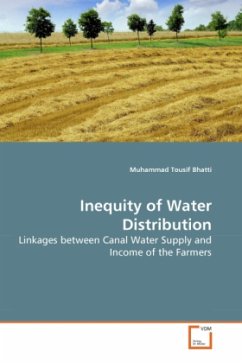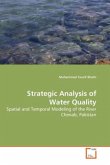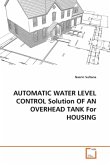A major reason of low irrigation efficiency in the developing countries is inequitable distribution of water along the irrigation channels. Pakistan has the largest contiguous irrigation system in the world but the efficiency of this system is very low. The tertiary irrigation channels are operated on rotational basis,locally called the Wara-bandi'. Commonly, farmers at tail-end of the irrigation channels receive less than their promised share of water mainly due to conveyance losses. This situation leads the farmers spend more money to pump groundwater for irrigation. This book includes the statistical techniques to quantify inequity of the water distribution. It also envisages methodology for an economic survey, and linkages between water distribution and farmers' income. This book should be helpful to irrigation engineers, water managers and progressive farmers.
Bitte wählen Sie Ihr Anliegen aus.
Rechnungen
Retourenschein anfordern
Bestellstatus
Storno








